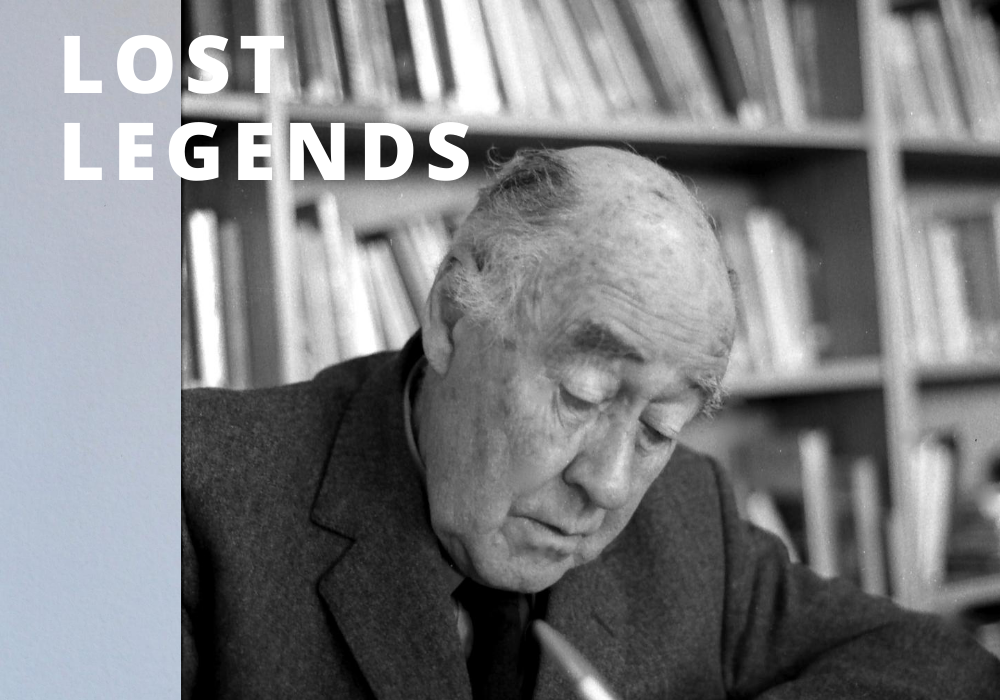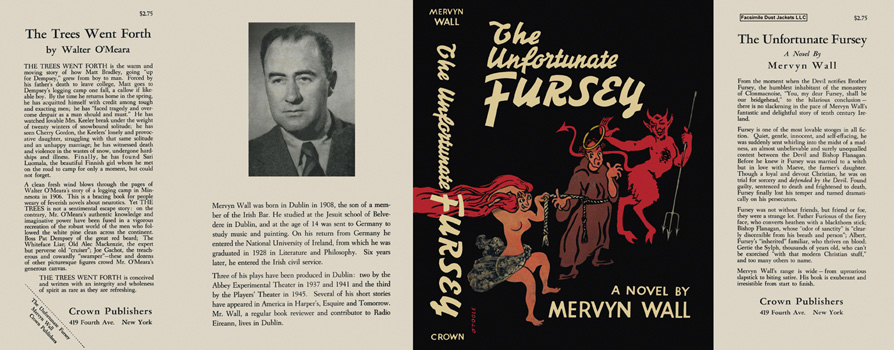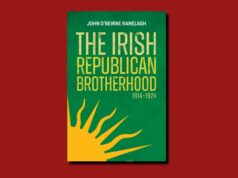
Tony Canavan looks again at Mervyn Wall
LOST LEGENDS OF IRISH LITERATURE
‘In Ireland anything may happen to anyone anywhere and at any time, and it usually does.’
(The Unfortunate Fursey)
Mervyn Wall (1908–97) was born in Rathmines, Dublin. He was educated in Belvedere College; in Bonn, Germany; and University College Dublin, where he obtained his BA in 1928. He worked for fourteen years in the civil service, before leaving to join Radio Éireann as Programme Officer. In 1957 he left the national broadcaster to become Secretary of the Arts Council of Ireland, a position he held until 1975. He is credited with instigating Aosdána, the Irish academy of letters. He was married to Frances Feehan, who was a theatre and music critic. He was widely known during his lifetime as a broadcaster and critic, but he published novels, short stories and plays, and wrote for a short-lived literary magazine, Ireland Today.
Wall is probably best remembered for two humorous fantasy novels, The Unfortunate Fursey, written in 1946, and its sequel, The Return of Fursey, published two years later. They are about the misadventures of a monk in medieval Ireland. The Fursey novels were well received by critics internationally and are still highly regarded by fans of Gothic literature and fantasy. The American critic E.F. Bleiler in The Guide to Supernatural Fiction described The Unfortunate Fursey as ‘a landmark book in the history of fantasy’.
Wall was not, however, primarily a writer of fantasy fiction, and, arguably, the Fursey stories are more properly described as satire. He wrote four other novels: Leaves for Burning (1952), No Trophies Raise (1956), Hermitage (1982), and The Garden of Echoes (1982). Leaves for the Burning won Denmark’s Best European Novel award in 1952. It is often said that, like many other Irish novelists of the time, Wall was lost in the shadows of Joyce and Beckett, meaning that his true genius was never recognised. The passing of time has not helped and now only students of modern Irish literature or fans of fantasy know his work.

In The Unfortunate Fursey a medieval Irish monastery is besieged by the forces of darkness. The monks keep the demons at bay by reciting the rite of exorcism. But the satanic forces find their way in through the cell of the unfortunate Fursey, who has a stammer and so cannot recite the prayers quickly enough to stop them coming in. Fursey is blamed for letting in the evil and banished from the monastery. What follows is a hilarious quest by Fursey, accompanied by a demon familiar, to find his place in the world. Wall uses Fursey’s misadventures to satirise contemporary Ireland and it is not difficult to identify the targets in politics, the Church and Irish society at large that he pours scorn on. Much of the satire in the novels is still relevant today. The Fursey novels fit well into the Irish literary traditions of the comic and the fantastic. Think of the writings of Jonathan Swift, who also used fantasy to satirise society around him. Some have seen in the wanderings of Fursey echoes of Charles Maturin’s Melmoth The Wonderer.
Undoubtedly, The Unfortunate Fursey is a masterpiece and a novel that I am surprised has never made it onto the screen as a film or TV series (although there was a theatrical version in 1964). The Return of Fursey is also funny but, like many sequels, is not in the same league as the original. Personally, I believe that Wall’s serious novel, Leaves for Burning, is one that deserves to be remembered and read today. It captures the disillusionment felt by many with independent Ireland and engages with existential dilemmas through its main protagonists in a manner of reminiscent of writers like Camus or Sartre. Like many Irish novels, it is set in a small midland town, among an insular, suspicious community, perfectly evoking the stifling atmosphere of Ireland in the 1950s. Through this novel, Wall engages with the issues of the passing of youth and opportunity, and the onset of premature aging, which, after all, are universal themes.
Mervyn Wall never made it as a novelist in the sense of sales or fame, but he was an accomplished writer who was adept at fantasy, comedy, satire and serious fiction. The unfortunate monk Fursey is a timeless comic creation and Wall uses him as the vehicle to make telling points about Irish society. In his more serious work, such as Leaves for Burning, Wall poignantly evokes the shortcomings of an Ireland that was suspicious of creativity, even of fun.
***
By Tony Canavan











